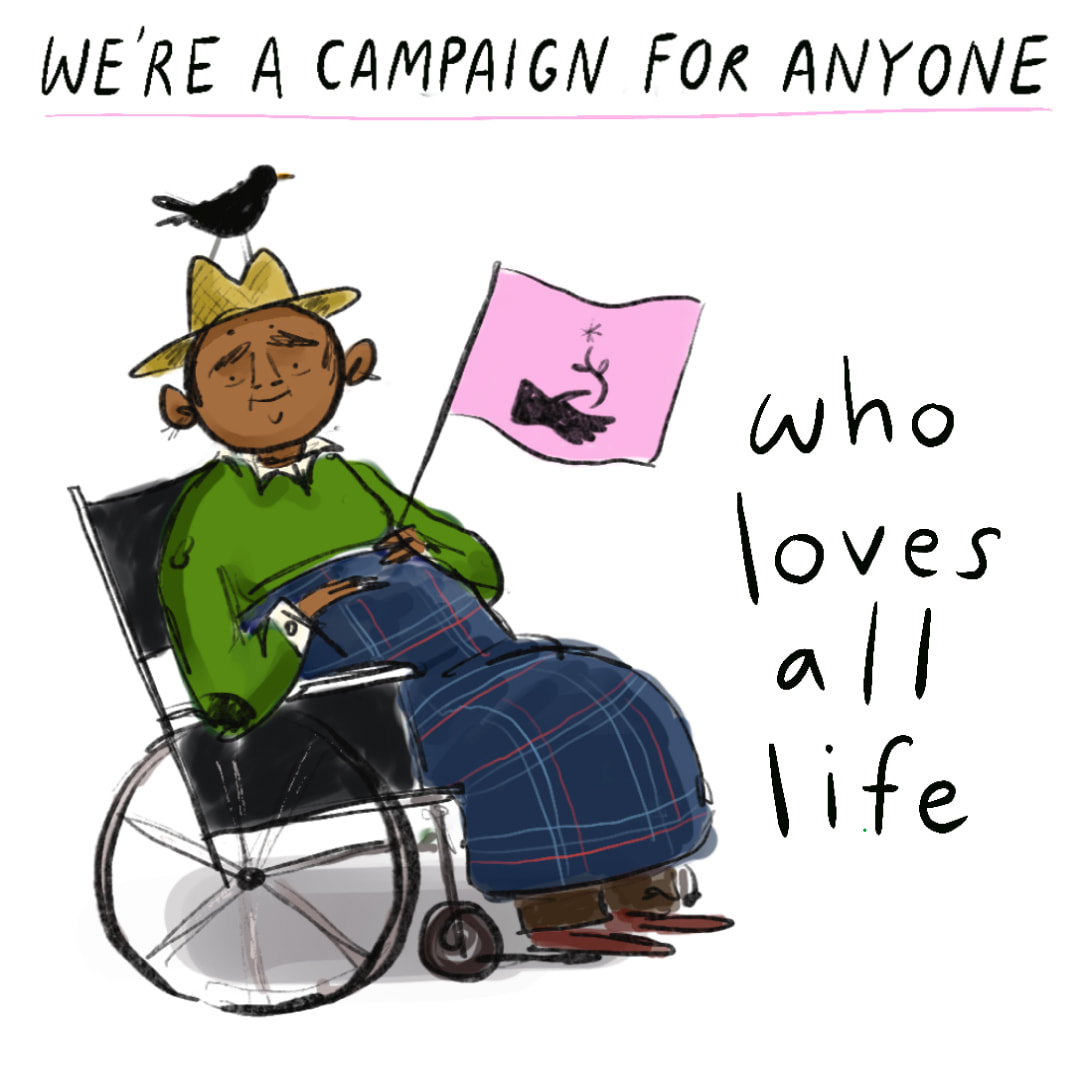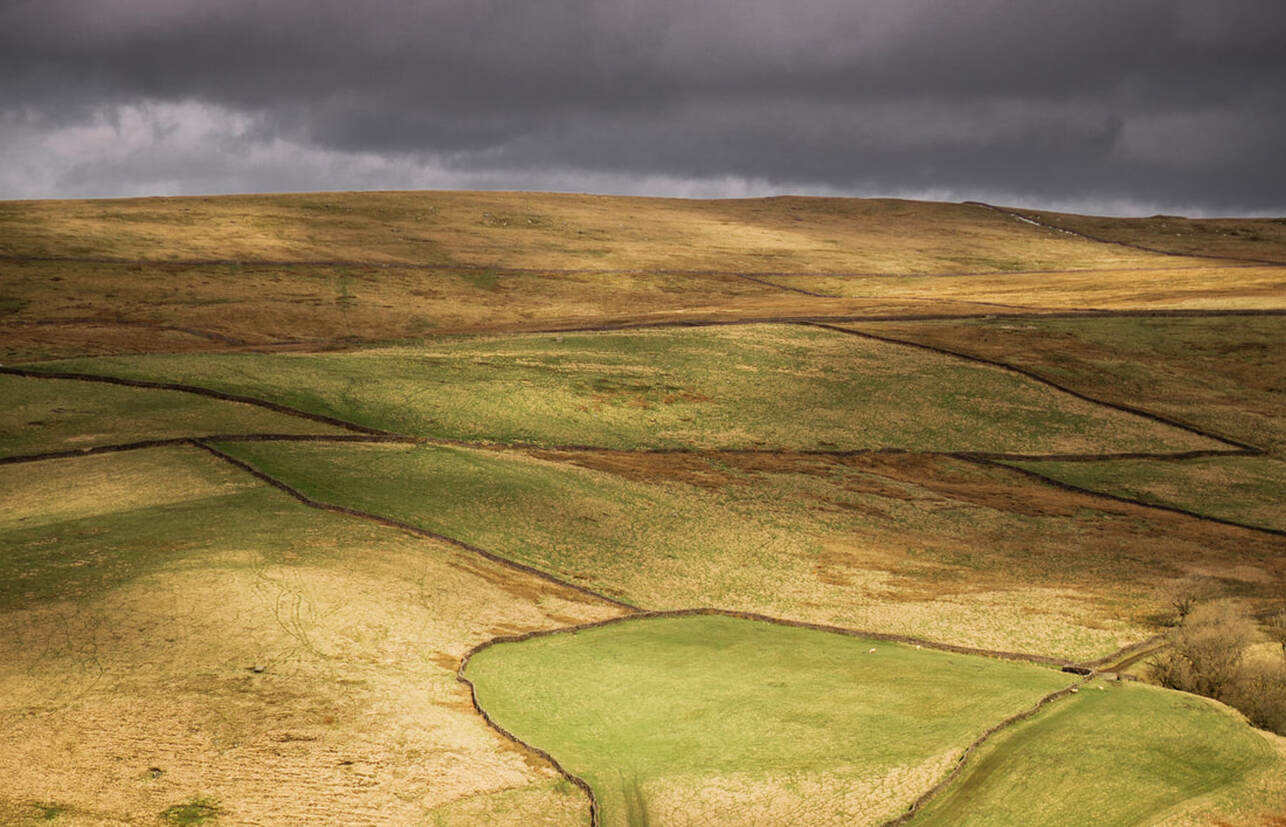What we want.
|
Wild Card wants the country’s largest landowners to urgently address the climate and nature crisis by beginning ambitious rewilding schemes now. Our long-term vision is to see 50% of the country fully rewilded.
No more slippery terms like ‘protected’ or ‘conservation area’. No more romanticisation of destructive land practices. Half means half. We ask for this to begin immediately, working with local communities and smaller landowners, because we recognise that many steps will need to be taken along the way. And trees take time to grow, you know… |
What do we mean by rewilding?
To rewild the land and water is to allow untamed life to return to ecosystems and landscapes, such that they are once again sustained by the natural processes that created them in the first place. In restoring these processes, human intervention may be required.
The problem.
The state of Britain’s nature is abysmal. Despite myths of a ‘green and pleasant land’, our landscape is a source of national shame.
The UK is “among the most nature-depleted countries in the world”.
Whilst once these islands were covered in wild habitat such as temperate rainforests, (for real!) now only sheep-grazed deserts remain. Where once there roamed lions, bears, wolves, lynx, beavers, bison and white storks, today we’re lucky to meet a roadkill hedgehog.
By weight, 60% of the world’s animals are livestock, 36% are humans and only 4% are wild. Experts estimate the situation is even more dire in the UK.
Today, as pollinators vanish and extreme weather worsens, our country’s very stability and security is on the line. Sadly, most of us are not in a position to rectify this easily. Over 50% of England is owned by 1% of its population. In Scotland, under 500 landowners own more than half the nation. If we want to save our lands, we must take our urgent plea to these landowners.
The UK is “among the most nature-depleted countries in the world”.
Whilst once these islands were covered in wild habitat such as temperate rainforests, (for real!) now only sheep-grazed deserts remain. Where once there roamed lions, bears, wolves, lynx, beavers, bison and white storks, today we’re lucky to meet a roadkill hedgehog.
By weight, 60% of the world’s animals are livestock, 36% are humans and only 4% are wild. Experts estimate the situation is even more dire in the UK.
Today, as pollinators vanish and extreme weather worsens, our country’s very stability and security is on the line. Sadly, most of us are not in a position to rectify this easily. Over 50% of England is owned by 1% of its population. In Scotland, under 500 landowners own more than half the nation. If we want to save our lands, we must take our urgent plea to these landowners.
Farmers and food.
The science is clear. If we are to avert a global catastrophe we need to rewild on a massive and unprecedented scale. Our national diets must become more plant-based, but we must also eat more locally and rely less on carbon intensive imports. Such huge changes are not a matter of debate; they’re a matter of scientific consensus and UN recommendation. And the stakes could not be higher. As David Attenborough has warned us, this is about avoiding the ‘collapse of our civilisations’.
The good news is that the numbers add up. According to data in the Zero Carbon Britain Report by the Centre for Alternative Technology, changes to our diets could free up vast swathes of the British landscape for nature based solutions and allow us to reduce imports from 42% to 17%. But this is useless if large UK landowners ramp up exports instead. Everyone needs to play their part.
The first landscapes to be rewilded must be those that contribute little to our food security. Grouse moors cover half a million acres of the UK but feed no-one. Meanwhile low productivity grades 4 and 5 agricultural land cover much of our uplands but add a vanishingly small amount of calories to our plates.
Nonetheless, the change needed will ultimately put a huge burden on farmers. Massive changes to the way we produce our food and steward our land are needed. Whilst some farmers are already rewilding pioneers, Wild Card believes that society as a whole must now step up to help the farming community thrive economically and culturally through this transition.
Our post-Brexit agricultural policies must be enhanced to leave farmers better off not worse as they step into the dual role of nature stewards and food producers. Where large landowners have tenant farmers, they should re-invest their own profits into funding such tenants to lead rewilding projects.
The good news is that the numbers add up. According to data in the Zero Carbon Britain Report by the Centre for Alternative Technology, changes to our diets could free up vast swathes of the British landscape for nature based solutions and allow us to reduce imports from 42% to 17%. But this is useless if large UK landowners ramp up exports instead. Everyone needs to play their part.
The first landscapes to be rewilded must be those that contribute little to our food security. Grouse moors cover half a million acres of the UK but feed no-one. Meanwhile low productivity grades 4 and 5 agricultural land cover much of our uplands but add a vanishingly small amount of calories to our plates.
Nonetheless, the change needed will ultimately put a huge burden on farmers. Massive changes to the way we produce our food and steward our land are needed. Whilst some farmers are already rewilding pioneers, Wild Card believes that society as a whole must now step up to help the farming community thrive economically and culturally through this transition.
Our post-Brexit agricultural policies must be enhanced to leave farmers better off not worse as they step into the dual role of nature stewards and food producers. Where large landowners have tenant farmers, they should re-invest their own profits into funding such tenants to lead rewilding projects.





